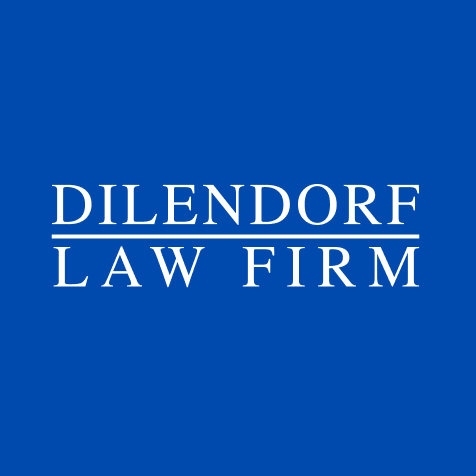Opportunities Provided under Regulation CF
Regulation Crowdfunding enables eligible companies to offer and sell traditional and tokenized securities through crowdfunding. The rules:
- permit a company to raise a maximum aggregate amount of $5 million through crowdfunding offerings in a 12-month period
- require all transactions under Regulation Crowdfunding to take place online through an SEC-registered intermediary, either a broker-dealer or a funding portal
- limit the amount individual non-accredited investors can invest across all crowdfunding offerings in a 12-month period; and
- require disclosure of information in filings with the Commission and to investors and the intermediary facilitating the offering
Defining the Scope of Regulation CF STOs
Reg. CF STO can be any offering and sale of digital tokens that are considered securities under US law.
Security tokens sold during Reg. CF STO are any virtual tokens that exist on a blockchain and meet the definition of a security under US law, whether the tokens represent function on a platform (known as “utility tokens”), ownership of a real-world asset (asset-backed tokens), interest in a fund (fund tokens), equity (equity tokens) or debt (crypto bonds).
Accordingly, the scope of Reg. CF STO is very broad and may include, for example:
- Real estate;
- Tokenized traditional securities, like shares of stock in a corporation;
- Tokenized fund interests, including venture capital and real estate funds;
- Diamonds or precious metals;
- Works of fine art, luxury cars and boats;
- Interests in a limited partnership or other business entity;
- Profit-sharing right in a business entity, etc.
Understanding the Advantages of Reg. CF STOs
By going through STO process, companies and funds can raise capital from investors while benefiting from the advantages that blockchain affords, including:
- Increased liquidity – for example, Reg. CF securities can be traded on regulated ATS platforms within one year of issuance;
- Simplified access to capital on a global scale;
- Fractionalization of ownership;
- Increased transparency and security;
- Simplified investors’ management, etc.
Secondary Trading of Reg. CF Security Token Offerings
To launch a successful Reg. CF STO, issuers will need to meet compliance standards, create a stable governance structure, and have shares that are able to be traded on the secondary markets called Alternative Trading System platforms (“ATS”) in the US and overseas.
Finally, the minted Reg. CF STO tokens must be compatible with the chosen regulated ATSs to be listed and tradable. This challenge should be addressed beforehand as different tokenization platforms and ATSs have different standards and protocols – some are still being restructured or developed.
Reg. CF issuers should establish contacts with the ATS of their choice before the primary issuance to ensure that the issuer’s and platform’s configurations of digital securities match and the pre-listing procedures required by the ATS are adhered to.
Some of the ATS platforms offer all-in-one tokenization, marketing and listing services, which may simplify your task but still require an in-depth due diligence on the possible issues outlined above.
If the offering is poorly structured or documented, the Reg. CF smart contract tokens’ features may not enforceable for secondary trading, or if the security tokens are incompatible with the selected ATS, blockchain projects may be tempted by a seemingly simple technical solution – recalling the flawed security tokens and replacing them with the new ones.
However, this may not be possible or may be costly and complicated from the legal standpoint, as one cannot always simply recall the issued securities, albeit in the form of digital tokens.
Defects in a Reg. CF security tokens itself may be incurable for legal compliance purposes and may disqualify the security from being listed on a regulated trading platform.
So, getting your Reg. CF security tokens to secondary market is something to consider well in advance, or risk the loss of the digital security’s value, or even liability for violation of securities and other laws.
Regulation CF Limitations
While Regulation CF expands the options for raising funds from the American investors, it also contains certain limitations, which must be complied with to be exempt from the registration requirements, including:
- The issuer of securities under Regulation CF must be a U.S. entity;
- Investors are limited in the amount they are allowed to invest in proportion to their income;
- The offering must be made only through a broker-dealer registered with SEC or a funding portal accredited with the Financial Industry Regulatory Authority (FINRA);
- Securities purchased under Regulation CF cannot be traded on the secondary market within a year of ownership, except to family members or accredited investors.
Guiding Clients Through Every Stage of Equity Crowdfunding Under Traditional and Tokenized Reg. CF Offerings:
- Corporate structuring for domestic and foreign issuers — incorporating a legal entity in the U.S. or creating a U.S. holding for a foreign company;
- An appropriate token sale structure to U.S. and non-U.S. investors, including transfer restrictions and token issuance;
- Advising on potential bottlenecks that may arise in tokenized Reg. CF offerings, e.g., marketing issues, taxation issues, risk of not getting listed on ATS platform after the issuance due to legal, business & tech-related issues, etc;
- Structuring the offering and equity terms;
- Advising on operational questions, including the work with broker-dealers, funding portals, ATS platforms and other crowdfunding intermediaries or service providers;
- Due diligence of advertising materials and other documents published on the funding portals and the limited information that can be provided to investors outside of the funding portal;
- Advising on opportunities for combined offering to accredited investors under Reg D and non-accredited investors under Reg CF;
- Drafting and filing the Form C offering statement with the SEC that will include, among other things, (i) information about the company owners, directors, and officers; (ii) description of the issuer’s business; and (iii) an overview of the issuer’s financial situation and other required information.
Transactions Conducted Through an Intermediary
Each Regulation Crowdfunding offering must be exclusively conducted through one online platform. The intermediary operating the platform must be a broker-dealer or a funding portal that is registered with the SEC and FINRA.
Issuers may rely on the efforts of the intermediary to determine that the aggregate amount of securities purchased by an investor does not cause the investor to exceed the investment limits, so long as the issuer does not have knowledge that the investor would exceed the investment limits as a result of purchasing securities in the issuer’s offering.
Eligibility
Certain companies are not eligible to use the Regulation Crowdfunding exemption. These include:
- non-U.S. companies;
- companies that already are Exchange Act reporting companies;
- certain investment companies;
- companies that are disqualified under Regulation Crowdfunding’s disqualification rules;
- companies that have failed to comply with the annual reporting requirements under Regulation Crowdfunding during the two years immediately preceding the filing of the offering statement; and
- companies that have no specific business plan or have indicated their business plan is to engage in a merger or acquisition with an unidentified company or companies.
Regulation CF Related Resources:
Summary
Service Type
Regulation CF Service
Provider Name
Dilendorf Law Firm,
4 World Trade Center,New York,New York-10006,
Telephone No.12124579797
Area
Alabama Alaska Arizona Arkansas California Colorado Connecticut Delaware Florida Georgia Hawaii Idaho Illinois Indiana Iowa Kansas Kentucky Louisiana Maine Maryland Massachusetts Michigan Minnesota Mississippi Missouri Montana Nebraska Nevada New Hampshire New Jersey New Mexico New York North Carolina North Dakota Ohio Oklahoma Oregon Pennsylvania Rhode Island South Carolina South Dakota Tennessee Texas Utah Vermont Virginia Washington West Virginia Wisconsin Wyoming
Description
Dilendorf Law Firm provides counseling to U.S. and international clients who are seeking to attract funds from the U.S. non-accredited investors utilizing opportunities provided by the Regulation Crowdfunding (also known as the Regulation CF).










































